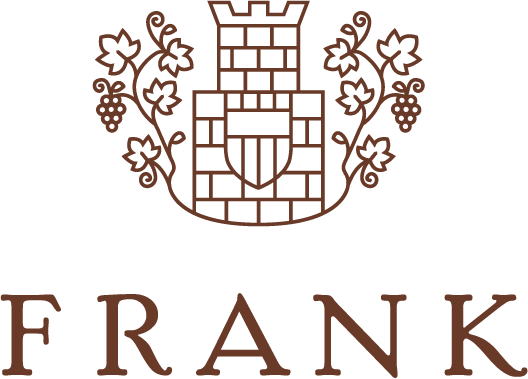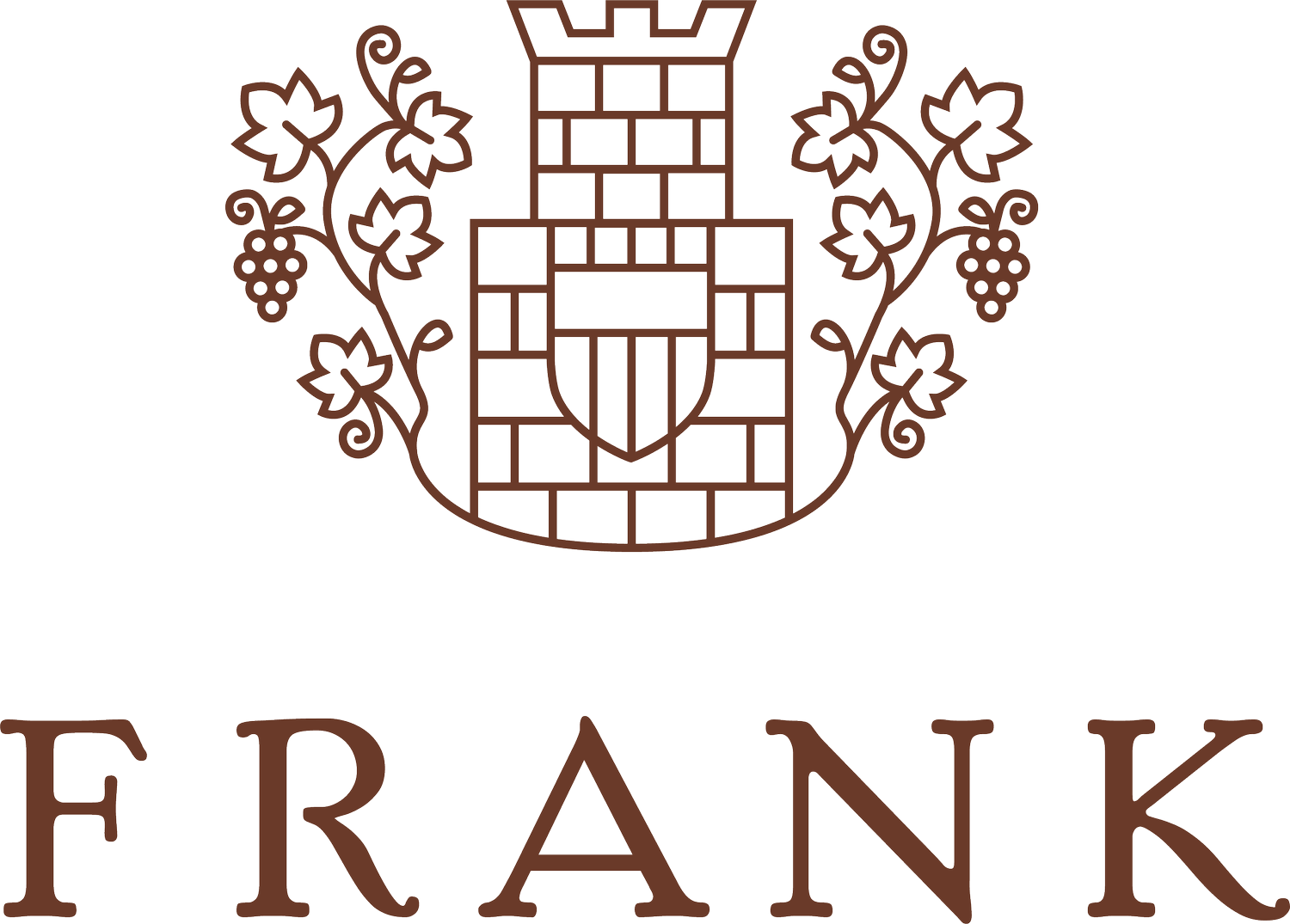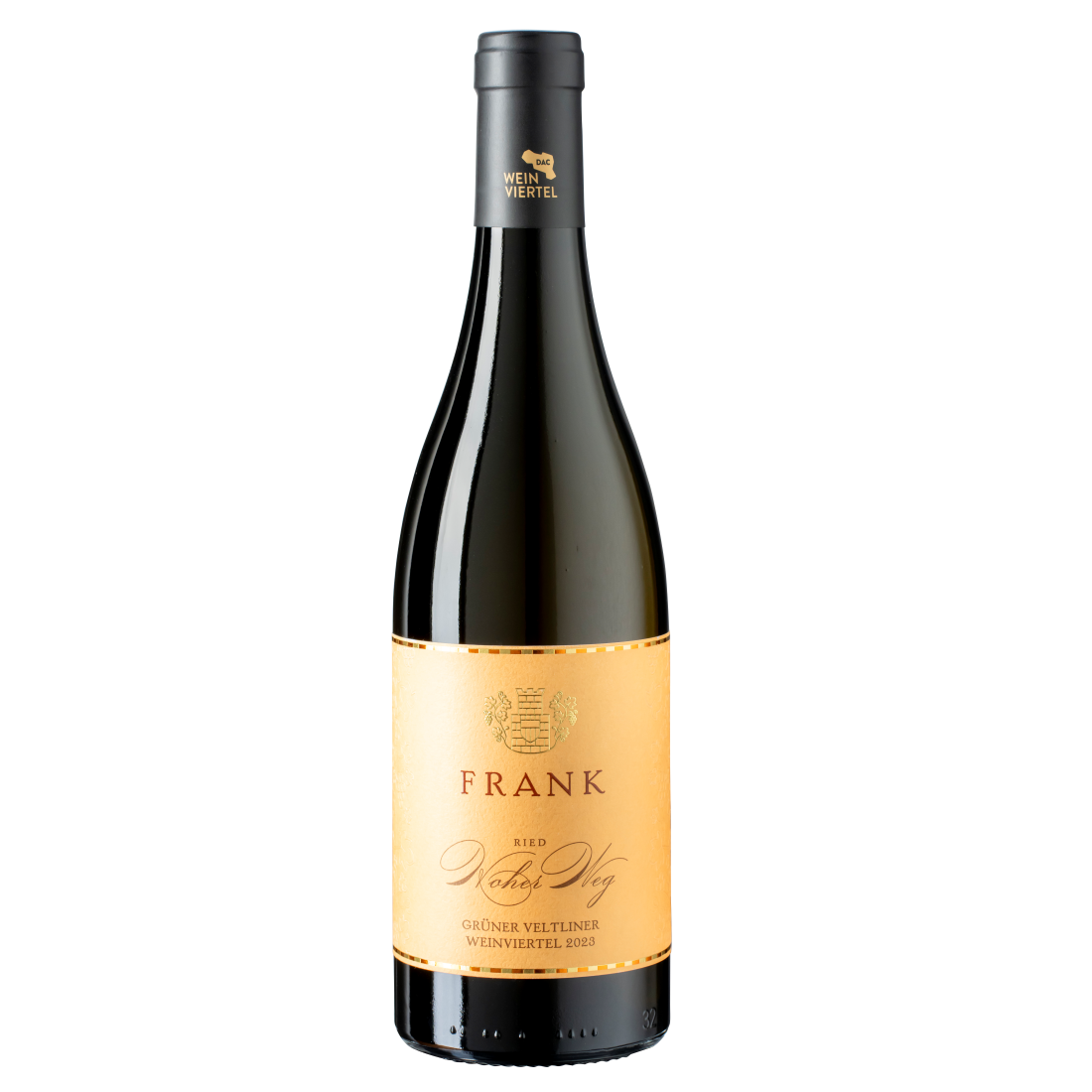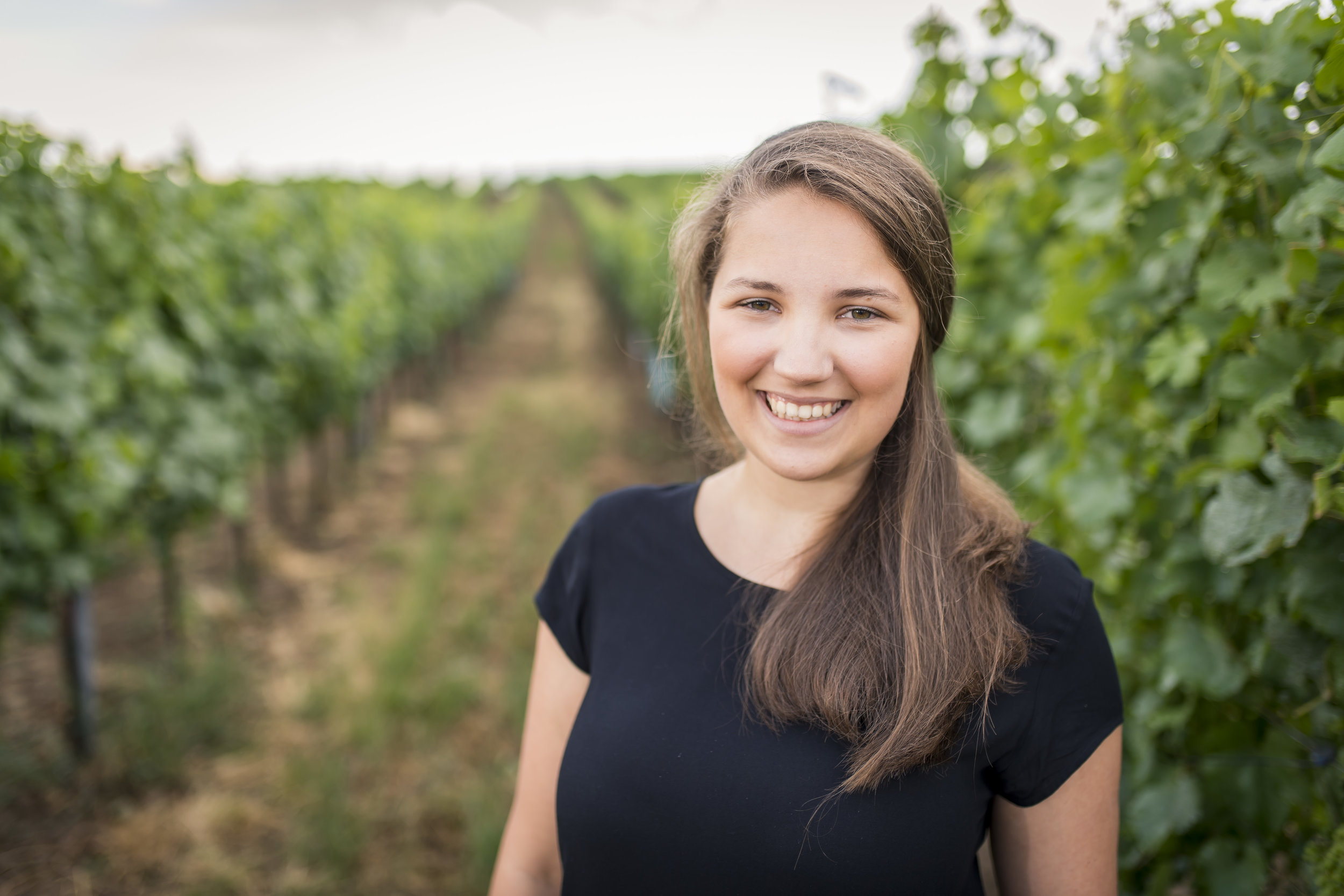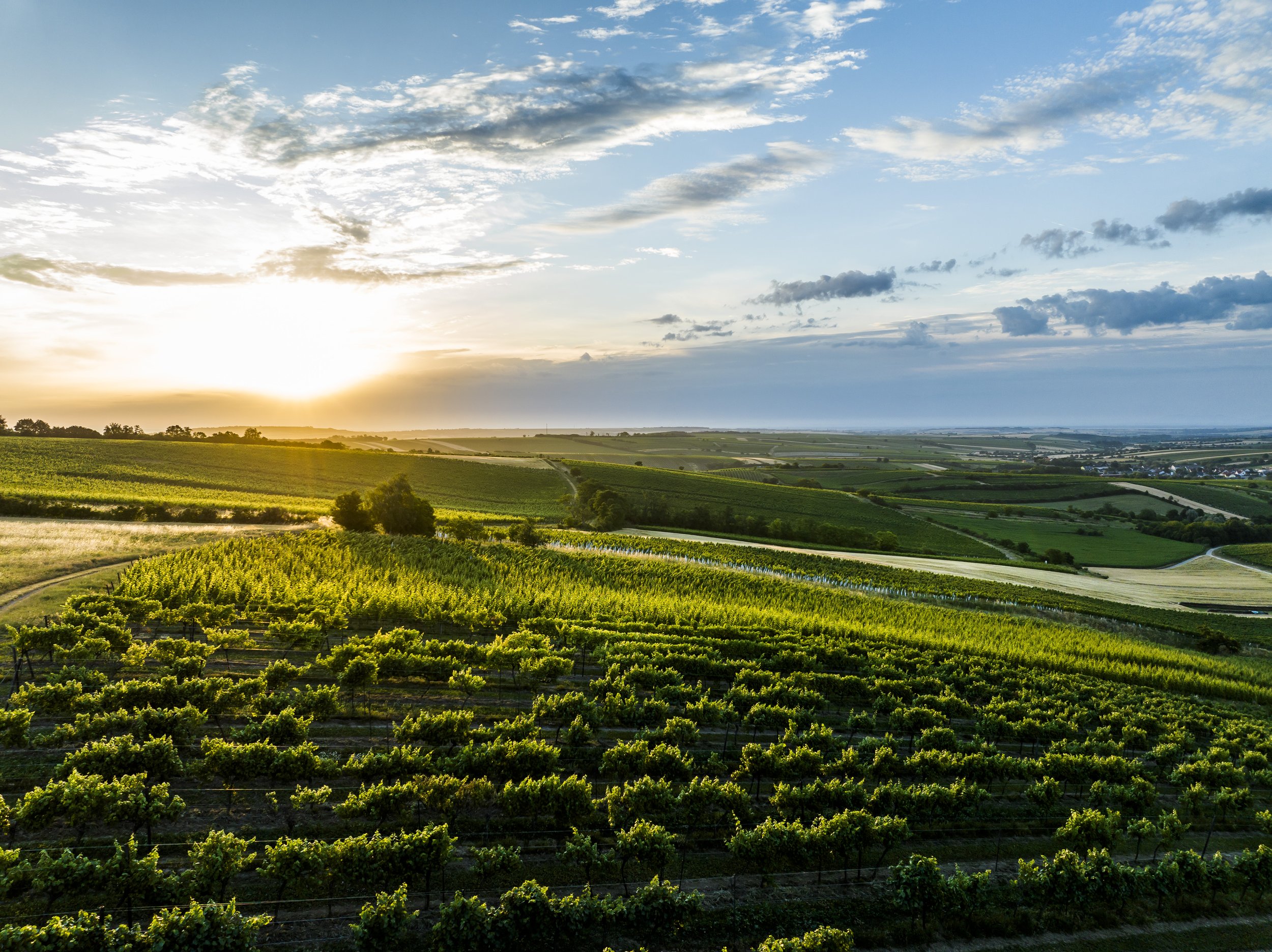
Weingut Frank
Home of Grüner Veltliner
Grüner Veltliner is our passion.
With this grape variety we experience different taste varieties of wine.
Join us on our journey.
Since vintage 2021 all our wines are produced VEGAN friendly and our winery is certified sustainable.
All our wines
Meet us at ProWein: Hall 17 / C24
The Frank Family
The frank family is producing wine already since 1724 in Herrnbaumgarten. Experienced manual labour in the vineyards is the foundation of our wines. We see ourselves as farmers of vines. All work is carried out under the care of all family members. We plant the vines, tend the vineyards and pick and select the grapes by hand. This guarantees cristall clear and exeptional wines.
Harald and Daniela
DI Harald Frank
Harald is the landlord of the winery, but most of all he is responsible for the cellar and the vineyards. Harald studied food technology and bioengineering at the University of Natural Recourses and Life Sience in Vienna.
Mag. (FH) Daniela Frank
His wife Daniela takes care of businesspartners and suppliers, as well as she is in duty of all marketing issues. She studied Marketing & Sales at FH Vienna. After stages at IBM, Aegis Media and SevenOneMedia, she was CEO at her fathers bakery until 2013, when her brother took over and she worked for the winery.
Katrin
Katrin Frank Msc
Katrin is the second landlord of the winery together with Harald. Katrin, the cousin of Harald, studied enology at the University of Natural Recourses and Life Sience in Vienna. She went to Italy, California and South Africa during her studies. With her background Katrin brings in new knowledge and handcraft into the winery.
Johanna
Johanna Frank
Johanna, Katrins mother, manages the office of the winery. She knows every single vine around the beautiful village.

Herrnbaumgarten the village
It is a small village with only 900 inhabitants close to the Czech Republic border, where the Grüner Veltliner and the Riesling have their best place to grow on the hills surrounding it. It is like an amphitheater, the houses on the ground surrounded by the vineyards looking into every direction of the compass. Revealing the freshness and the fruitiness of the grapes. As the vineyards are just situated around the village, it only takes about 15 minutes time to bring the grapes at harvest time from the vineyards right to the winery.
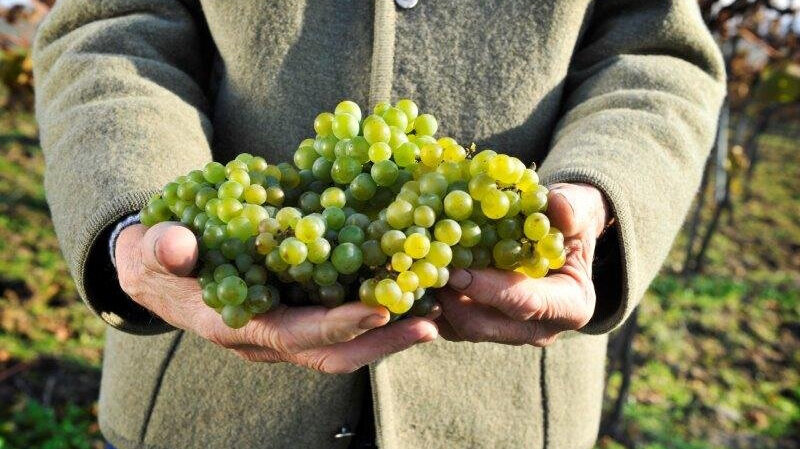
Skilled craftmenship at the highest level.
– Harald Frank
Handcrafted wines
Our family has been growing wine for many generations, which is why treating nature responsibly and with respect comes naturally to us - after all, the soils also have to give future generations the opportunity to harvest healthy grapes. Planting crop covers stimulates the soil, ensureing nutrient supply to the vines. This also promotes biodiversity - and this simply is the best plant protection.
We take care of our vines simply with our own hands: cleaning the vines, careful canopy management, thinning out as well as grape harvesting and selecting are all carried out exclusively by hand. This allows us to harvest healthy and ripe grapes every year.
A Piece of Nature in every Glas
Gentle grape processing and simple cellar management maintain the natural aroma of the grapes. We want you to be able to taste a little bit of the wonderful region we live in and the passion we develope while taking care of our treasure.
Let your ancestors have a good life because of your work
Saving ressources and optimizing all our work is one of our main goals. We use light weight bottles, even for our high quality wines. Our suppliers are all in our direct surrounding and we pursue the reduction of CO2 in our company. We try not to use the traktor too often in the vineyards and we have implemented a PV-plant on the roof of our cellar and an air-source-heatpump for the house.

“Grüner Veltliner - fruits and pepper in a glass”
– Daniela Frank
Geology
LIME AND LOESS
From a geological point of view, Herrnbaumgarten is located at the north-western border of the Vienna basin. For millions of years, the lower parts – today in a depth of up to 5,000 m – were covered by Paratethys, a shallow tropical sea. The mighty tertiary sediments of clay, sand, schlier and lime stem from this era.
Over 5 million years ago, the Vienna basin was completely silted up with sedimentation. In the Ice Ages, large areas of the Weinviertel were covered by fine grained, medium-weight and lime-rich sediments wind blown from the flood plains bare of vegetation (loess).
This loess layer is up to 15 m thick. On the slopes, however, the loess was partly washed away. That is where older sediments influence the vines.
This situation allows us to plant our vines on the following geological conditions:
Tertiary Sediments of lime and clay: very rich in lime, heave and meagre (Altenbergen, Krainholz), ideal for Zweigelt or Pinot varieties
Schlier: Meagre and low in lime (Hannbuch). Fine for Cabernet Sauvignon.
Mighty loess: Rather light, medium lime concentration, warm (Johannesbergen with Hoher Weg as sub-vineyards). Perfect conditions for Grüner Veltliner and Merlot.
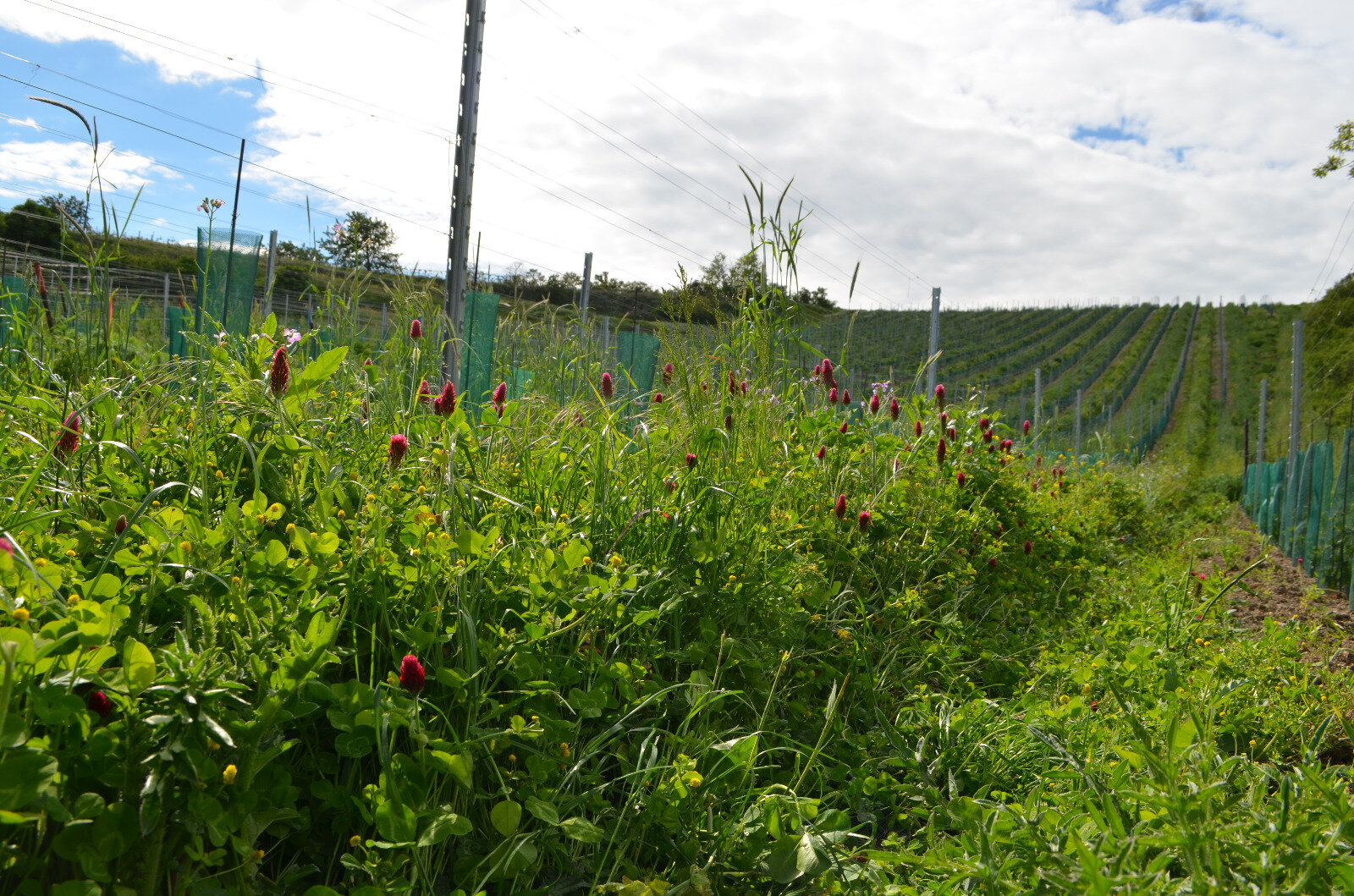
“Vegetation brings vitalization.”
– Johanna Frank
Climate
PANNONIAN – CONTINENTAL
With annual precipitation of 500 mm, the Weinviertel is one of the world’s driest wine-growing areas. And hence one of the sunniest too.
The continental influence and the resulting clear and cold nights in autumn prevent a premature respiration of aromatic substances in the grape berries. Autumn mostly is also very dry, so that botrytis (rot) occurs on the grapes in exceptional years only. This allows us to produce white wines of elegance and reds full of character.

“Wonderful climate. Barren ground.”
– Katrin Frank
